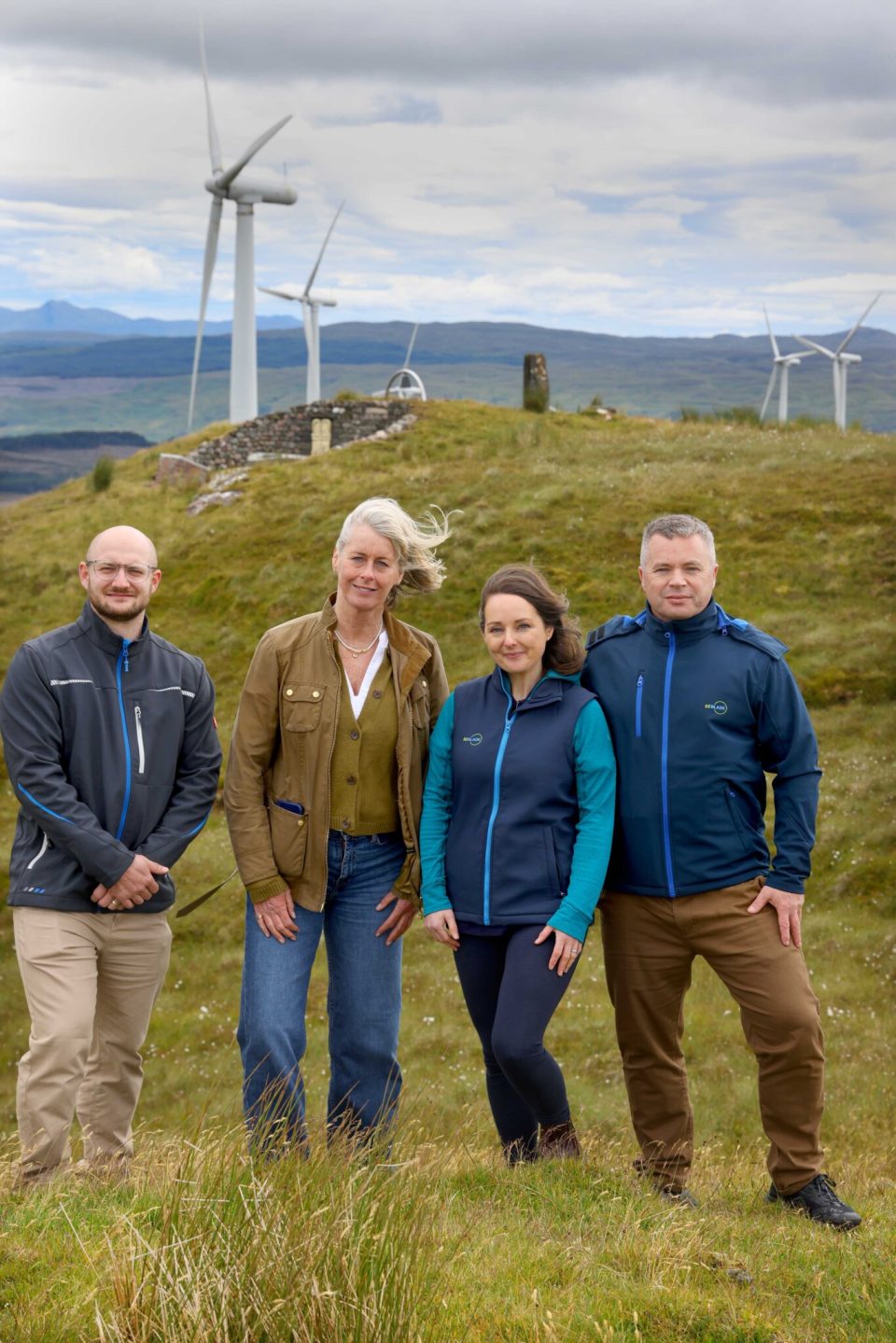- Nadara launches its Sustainable Decommissioning Strategy for Beinn Ghlas Wind Farm in partnership with specialist wind turbine decommissioning service – Reblade
- Partnership brings together two industry leaders with a shared commitment to sustainability, setting new benchmark for environmental stewardship and socio-economic enhancement
- Strategy is understood to be the first of its kind in the UK and will focus on circularity, creating more sustainable supply chains and enhancing socio-economic benefits during decommissioning process.
Nadara, the largest independent power producer (IPP) of onshore wind in Europe, has announced the launch of the United Kingdom’s first Sustainable Decommissioning Strategy for Beinn Ghlas Wind Farm in Argyll, Scotland, setting a new benchmark for environmental stewardship and socio-economic enhancement in the industry.
Developed in partnership with Reblade, the country’s first specialist wind turbine decommissioning service, the comprehensive strategy focuses on circularity, creating more sustainable supply chains and enhancing socio-economic benefits during the decommissioning process.
According to an email to Energy Window International, the new Sustainable Decommissioning Strategy will form a critically important chapter in the Beinn Ghlas, repowering planning application, exploring circular destinations for the decommissioned material that will be removed from the site. As one of the oldest wind farms in the UK, Beinn Ghlas began operations in May 1999. It said the 25-year-old site comprised 14 Bonus (B44/600) wind turbines, providing an overall capacity of 8.4MW.
Nadara expects to submit an application for consent to replace the existing turbines with new, larger and more efficient turbines, substantially increasing the generating capacity of the site
Joanna Thornton, Beinn Ghlas Wind Farm Repowering Project Manager was quoted to have said: “The strategy provides an incredibly exciting opportunity to maximize the socio-economic benefits of the decommissioning process to the local economy.”
Azahar Gomez, Head of Development, Nadara also said: “We are thrilled to launch this important strategy together with our trusted partner, Reblade, which signals our commitment to sustainable practices throughout the lifecycle of our wind farms.
“With over 30 years of experience following the recent merger of Ventient Energy and Renantis, we are confident in our ability to lead on new and innovative practices that enhance the reuse, repurpose and recycle network and add sustainable value across the supply chain.”
Fiona Lindsay, Managing Director, Reblade was equally quoted as saying, “As the first strategy of its kind in the UK, this initiative not only highlights Nadara’s forward-thinking approach but it also serves as an inspiring model for others in the industry to follow.
“As the onshore wind industry begins decommissioning the first generation of wind farms at scale, it is essential that leading companies take a proactive and responsible approach to material handling at every stage. We are delighted to be partnering with Nadara to develop this important piece of work and we look forward to seeing this approach become more commonplace in our industry.”
| Nadara, said to have been created from the combination of Ventient Energy and Renantis – brings together 30 years of combined industry experience to become one of Europe’s largest renewable energy IPPs.
It has an installed 4.2GW portfolio of over 200 plants including onshore wind, solar, biomass, and energy storage, and a pipeline of 18GW. It operates in the U.S. and Europe, notably in the UK, Italy, France, Spain and Portugal, and has more than 1,000 employees. The company’s name, going back into history, was inspired by the Scottish Gaelic word ‘Nàdarra’, which means ‘natural’, which also embodies the natural energy it harnesses in the renewable energy plants that it develops, owns and operates and is a nod to the strong Scottish heritage of both Ventient Energy and Renantis. Reblade also is the first specialist wind turbine decommissioning service in the UK. Launched in 2021, the company draws on 30+ years of combined experience in wind turbine blade maintenance and windfarm site design. Its service is designed around pragmatic material management protocols with a strong focus on circularity and sustainability. As well as providing decommissioning consultancy and onsite works, the company design and manufacture public realm infrastructure – such as canopies and bus shelters – from decommissioned wind turbine blades which locks in tonnes of embodied carbon and diverts renewables derived waste from landfill.
|

